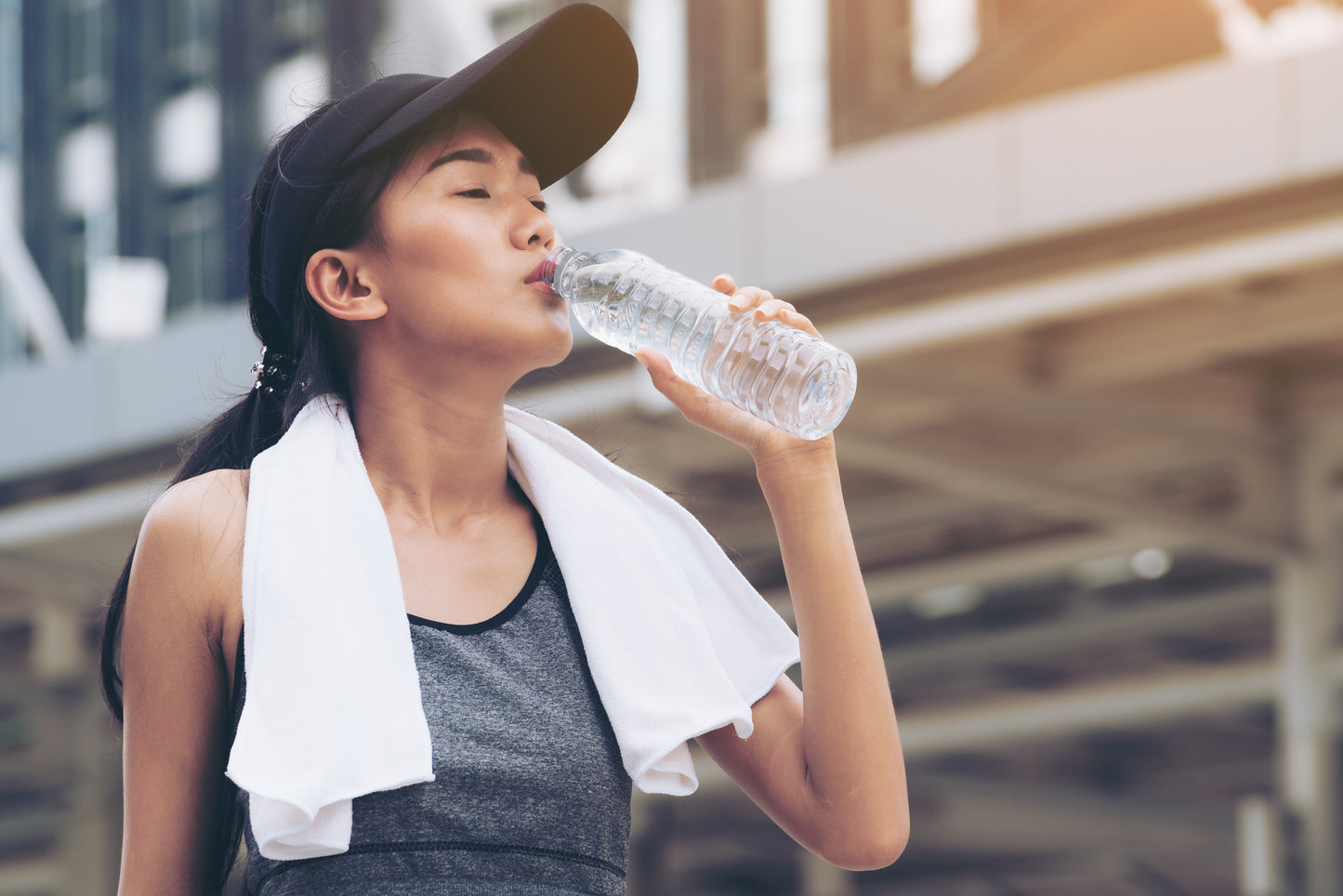
Step Aside, Sports Drinks. Here’s How To Replenish The Electrolytes Your Body Needs.
When you hear the word electrolyte, what comes to mind? It seems most people know that they need electrolytes, especially after a good sweat. But do you know electrolytes are also crucial after (and before!) a night of drinking? And that you also need electrolyte balance every day?
If not, you’re not alone. So let me explain...
What are electrolytes?
Electrolytes are minerals that dissolve in water in your body and produce charged ions. Many vital processes rely on the electrical current that’s created.
The mineral electrolytes I’m referring to include:
- Sodium
- Potassium
- Chloride
- Magnesium
- Bicarbonate
- Phosphorous
Now, before I go any further, I want to point out that — although the media would love you to think otherwise — sports drinks are NOT the only source of these minerals. In fact, the electrolytes in many sports drinks come from refined salt and synthetic sodium citrate and monopotassium phosphate. Plus, they contain a bunch of other junk, such as artificial colors, modified corn starch, and sugar.
Why does your body need electrolytes?
Maintaining a good balance of electrolytes is essential to your health, because electrolytes mingle with each other and various other internal structures to assist with a variety of vital functions.
Key Functions of Electrolytes
- Maintaining optimal fluid balance, so your cells don’t explode or shrivel up
- Regulating nerve function, which allow your nerves (and other tissues) to send and receive critical signals throughout the body
- Contracting and relaxing muscle tissue, including your biceps and your heart
- Regulating the pH level within your blood
It’s also worth noting that these minerals play many other important roles in the body in addition to acting as electrolytes. For instance, calcium and magnesium are both necessary for strong bones and teeth. Calcium is also involved in blood clotting. And magnesium is involved in over 300 biological processes, including energy production and DNA synthesis.
Electrolyte Balance Disruptors
You probably already know that your body loses electrolytes through your sweat, which could lead to an imbalance, especially after intense or prolonged activity. It makes sense, then, that you’d want to replenish your electrolytes after a workout.
You may also experience electrolyte imbalance when the weather is warmer, and, as I mentioned above, after a night of enjoying one too many cocktails, since your body uses electrolytes to convert the toxins in alcohol and expel them through the urine.
What else causes electrolyte imbalance?
- Not drinking enough water. However, drinking too much water, especially in the absence of electrolytes, can also be a problem.
- Rapid fluid loss from frequent bouts of diarrhea or vomiting.
- Kidney disease, as your kidneys are responsible for regulating the concentration of electrolytes.
- Poor nutrition. Processed junk food contains very few to no electrolytes. On the other hand, whole foods from nature are loaded with them.
Rapid weight loss can also lead to an electrolyte imbalance, so paying close attention to your fluid and electrolyte intake during weight loss is very important.
What are the signs of an electrolyte imbalance?
There are a wide range of symptoms you could experience from an electrolyte imbalance. It really depends on which electrolytes are out of whack, and whether your levels are too high or too low. But in general, here are some common signs:
- Twitching
- Weakness
- Fatigue
- Muscle spasms
- Erratic heartbeat
- Raise or dip in blood pressure
- Disorientation
- Numbness
- Dizziness
- Vomiting
- Loss of consciousness
What are the healthiest ways to balance your electrolytes?
- DON’T DRINK GATORADE! (or any sports drink really)
- Instead, drink a low-to-zero-sugar electrolyte drink, or, my personal favorite, bone broth, which is a solid source of hydration, protein, and minerals like potassium.
- Eat a nutrient-rich diet full of colorful fruits and veggies, wild fish, nuts, seeds, and meats from healthy, pasture-raised animals
- Stay hydrated, especially when temperatures are high
- Replenish after prolonged and/or intense exercise as well as after rapid fluid losses
What are the best sources of electrolytes for replenishment?
While all electrolytes are important and must be consumed daily, the two primary electrolytes that are lost through sweat include sodium and potassium. However, for light exercise, filtered water is often all you need as long as you’re also eating a mineral rich diet.
When water isn’t enough, adding ⅛ - ¼ teaspoon of sea salt to your water and eating half of an avocado or a full banana will do the trick. However, if you add ⅛ - ¼ teaspoon of sea salt and a cup of spinach to your post-exercise shake, you’ll get a healthy dose of sodium, calcium, magnesium, potassium, and phosphorus along with many other nutrients. Now that’s impressive!
Many people rely on coconut water, which is another option. It is a good source of potassium. And one cup provides approximately 250 mg of sodium. But after intense or prolonged exercise, especially in warm weather, this might not be enough for fitness buffs. And two cups deliver quite a bit of sugar.
Bone Broth for “Pre-Gaming”
If you’re heading out for the evening and you expect to enjoy some good food and cocktails, drinking bone broth before you go will help fuel your body with a good balance of nutrition… and it fills you up so you may actually end up eating and drinking less. Now, I’m not saying it’ll cure or prevent hangovers, but by supplying your body with essential nutrients and electrolytes — which also support optimal gut health — you’re helping your body’s functions perform at their best.
Keeping your electrolytes balanced starts with being mindful of your activities, the weather, your fluid intake and output, and more. Take care to take care. It’s all about balance.









